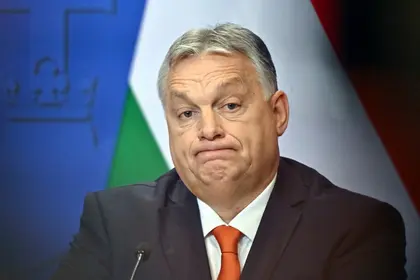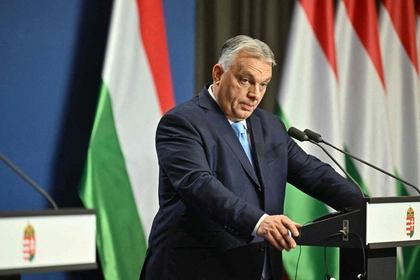On June 8, information appeared on the website of the Russian Orthodox Church (ROC) that Russia had handed over Ukrainian prisoners of war to Hungary “as part of inter-church cooperation.”
The message of the ROC also stated that this was done at the request of the Hungarian authorities. In addition, the news focused on the claim that the POWs were of “Transcarpathian origin” [Zakarpattia].
JOIN US ON TELEGRAM
Follow our coverage of the war on the @Kyivpost_official.
Hungary did not immediately comment until June 9, when the Hungarian Deputy Prime Minister Zholt Shemien confirmed to the Hungarian media ATV that the ROC had handed over 11 prisoners to them, the release of whom he claimed to have coordinated. “This is my human and patriotic duty,” noted Shemien.
He refused to give details, only adding that those released now owe “their freedom” to the ROC A Kyiv Post investigation has shown that the POWs gained their freedom because international law and Ukraine were bypassed.
Top secret release
On the same day as Shemien’s statement, June 9, the Ministry of Foreign Affairs of Ukraine (MFA) confirmed that the Ukrainian government had not been officially informed about the release of its soldiers from Russian captivity and were not involved in the process in any way. The MFA says it only learned about the transfer of the prisoners to Hungary after Shemien's television announcement.
"Even before the information about the release became public, Ukraine appealed to Hungary, through various channels, to verify and confirm the information. However, I received repeated objections regarding the preparation of such an action," Andriy Yusov, a representative of Ukraine’s Coordination headquarters for the treatment of POWs, told the Kyiv Post.

Moldova Residents Caught in the Middle of Gas Fight
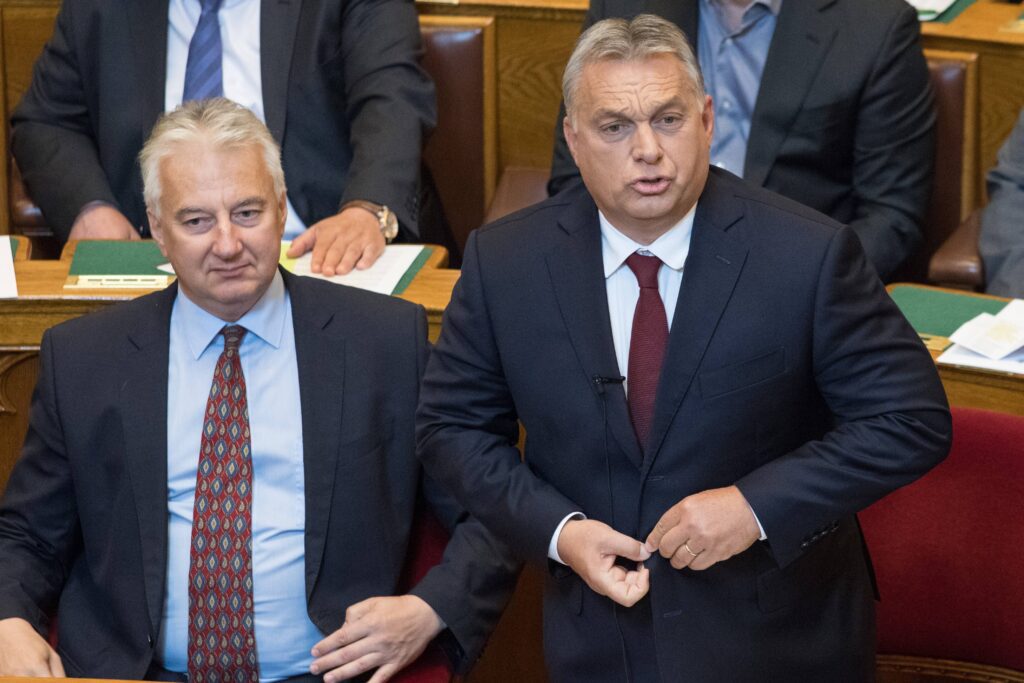 Zholt Shemien (left) and Viktor Orban. Photo: Vörös SzilßrdВ
Zholt Shemien (left) and Viktor Orban. Photo: Vörös SzilßrdВ
Ukraine appealed to the Hungarian government to provide detailed information on its citizens, but the Minister of Foreign Affairs of Hungary, Peter Szijarto, maintained that his government had nothing to do with the release of the prisoners. The Kyiv Post was told by the Ukrainian Ministry of Foreign Affairs that this was hard to believe.
According to Sijarto, the return of the prisoners of war took place because of direct cooperation between the Hungarian Charity Service of the Order of Malta and the ROC.
"These 11 people can move freely in Hungary, can do what they think is necessary, can contact with whomever they want," Szijarto added.
But the Ukrainian Foreign Ministry denied this. On June 20, a spokesman for the Ministry of Foreign Affairs, Oleg Nikolenko, wrote on Facebook that the Hungarians had not granted access to those released from Russian captivity, either to diplomats or to representatives of the Coordination headquarters for the treatment of prisoners of war.
"In fact, they are kept in isolation, do not have access to open sources of information, their communication with relatives takes place in the presence of third parties, they are refused to establish contact with the Embassy of Ukraine," said Nikolenko.
Who are these 11 prisoners of war?
According to preliminary information, these were “Transcarpathian Hungarians” who had taken part in military operations against Russia. It has not been specified where exactly they were captured and Ukraine has still not been provided with detailed information about the POWs.
Neither the MFA nor the Coordination Headquarters could even confirm that 11 POWs were involved or if they were all from Zakarpattia. They say that even the Red Cross has not been given all the necessary information. Yusov added that some relatives of the prisoners had been able to contact them and provided information to Ukrainian diplomats.
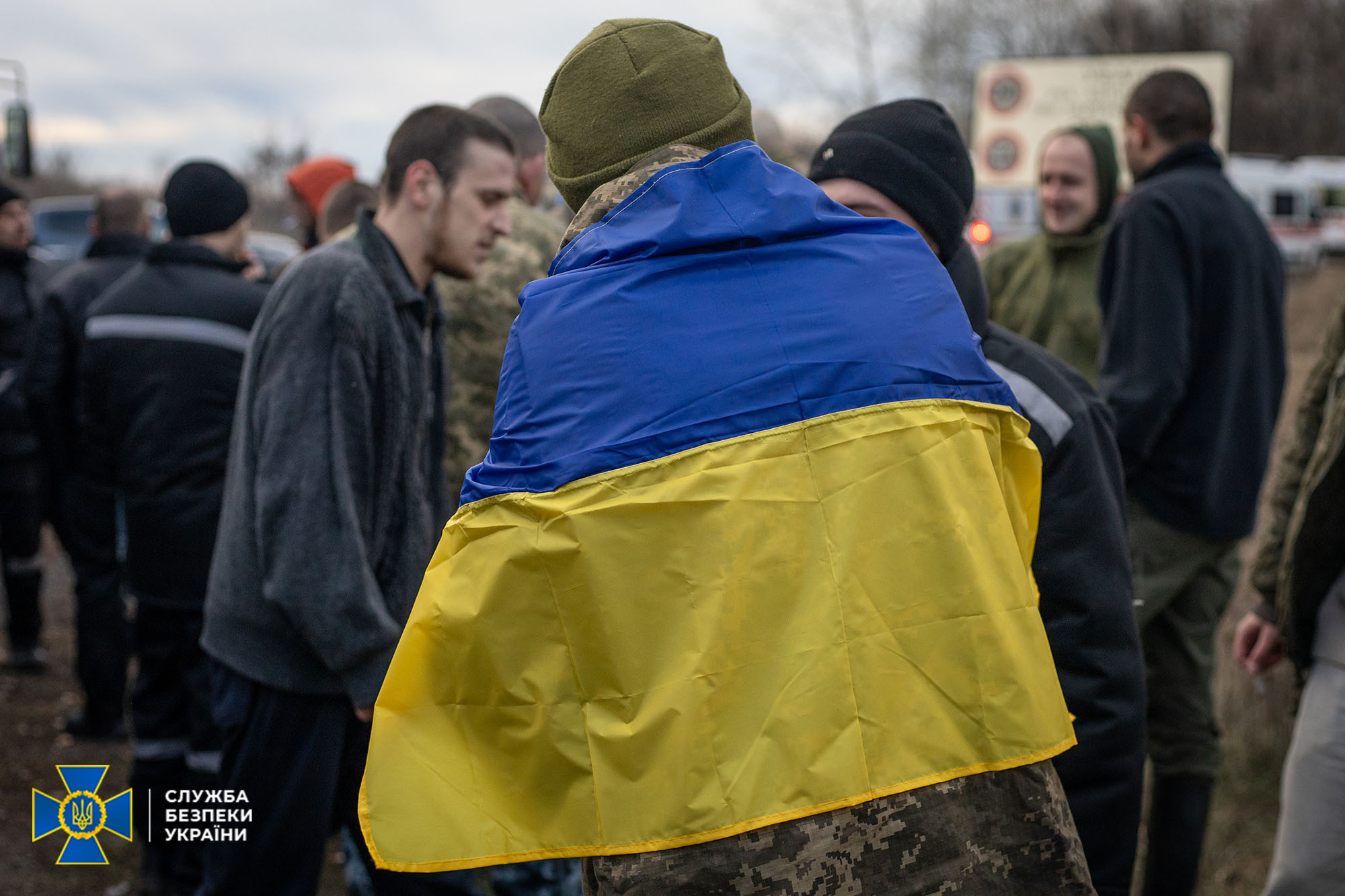 Photo: Security Service of Ukraine
Photo: Security Service of Ukraine
Some residents of Zakarpattia hold dual Ukrainian and Hungarian citizenship, even though it is illegal for Ukrainians to do so. It is not clear if this is the case for these military personnel.
It also remains unclear how exactly they were sent from Russia to Hungary which is a Schengen signatory. In a comment to the Kyiv Post, Yusov said that Ukraine has received unofficial preliminary information about the transfer, "But since it was not received from official parties, not from the Red Cross, not from the state of Hungary, we will not comment on it for the time being, but will wait for official reports."
What does this tell us about Hungary?
Dmytro Tuzhansky, director of the Institute of Central European Strategy, draws attention to Viktor Orban's silence on the issue. Despite the statement of representatives of his government that they were not aware of this, the expert does not believe that this operation could have been carried out without Orban's approval, especially if did include Hungarian soldiers.
According to the country's Constitution, the Hungarian government is obliged to protect ethnic Hungarians, regardless of where they live even if they don’t have Hungarian citizenship. Therefore, the return of "Transcarpathian Hungarians" would present positive political PR for both the country and its authorities which they did not take.
"The Hungarian authorities are doing everything possible to distance themselves from this story. They insist that, as they say, the Hungarian state was not involved in this case, and this is generally an interreligious dialogue," Tuzhansky said in a comment to the Kyiv Post.
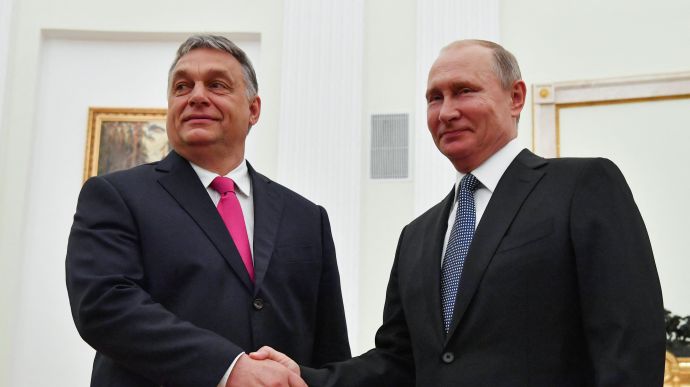 Viktor Orban and Vladimir Putin. Photo: AFP via Getty Images
Viktor Orban and Vladimir Putin. Photo: AFP via Getty Images
But the existence of such dialogue between Budapest and Moscow does not reflect well on Orban and his team, who have repeatedly spoken in support of Russia and against sanctions. The behavior of Hungary puts severe pressure on its already strained diplomatic relations with Ukraine, which Russia would be happy to exploit. The future cooperation between Budapest and Kyiv depends on how this story is resolved. Currently, there is great distrust towards their neighbors in Ukraine and also must have a negative impact on Hungary's standing within the European Union and NATO.
Hungary pretends that it received 11 people not as prisoners of war, but as refugees or stateless persons in an attempt to legally protect itself from possible consequences.
"If the Hungarian side is not deceiving us, then Russia simply handed over the actual citizens of Hungary to them. Hungarian government officials said some of these prisoners of war hold Hungarian citizenship. That is, the Hungarian state pretends that it does not know that these are prisoners of a war that Russia is waging against Ukraine, that these people were mobilized into the army, captured from the front line," Tuzhansky explains.
With both Russia and Hungary side emphasizing that the POWs were from Zakarpattia this brings the past difficulties that have existed between Kyiv and Budapest concerning the region where, according to the 2001 population census over 150,000 Hungarians live (up to 15% of the entire population in the region).
Russia is trying to use this incident to drive a wedge between Ukraine and Hungary, by suggesting that Hungarians from Transcarpathia were forced into the Ukrainian army. Tuzhansky says that according to a joint survey with the Democratic Initiatives Foundation, in August 2022, about 40% of Ukrainians believed that Budapest's military was hostile towards Ukraine.
"This fear is a direct consequence of Russian propaganda, as well as very bad relations between Kyiv and Budapest, which have deteriorated since 2016-2017," the expert believes.
But he believes that neither the ethnic Hungarians in Transcarpathia nor the Ukrainians are being provoked by the Russian efforts because it is obvious what they are trying to do.
What happens next?
Despite the incomprehensible statements of the Hungarians, the European Union has reacted to this story. On June 19, the leading press secretary of the European Commission for Foreign Affairs and Security Policy, Peter Stano, said that Hungary should explain its participation in the release of the POWs.
No explanation was forthcoming, but Hungary did react. On the evening of June 20, the Embassy of Ukraine in Budapest managed to remove three of the Ukrainian POWs from Hungary.
Kyiv Post asked the Ministry of Foreign Affairs for a comment on the further fate of those prisoners who still remain on the territory of Hungary. They refused to comment, noting that "the situation is very sensitive."
The incident is now being discussed in the Parliamentary Assembly of the Council of Europe. The release of POWs in violation of international law caused a major international scandal.
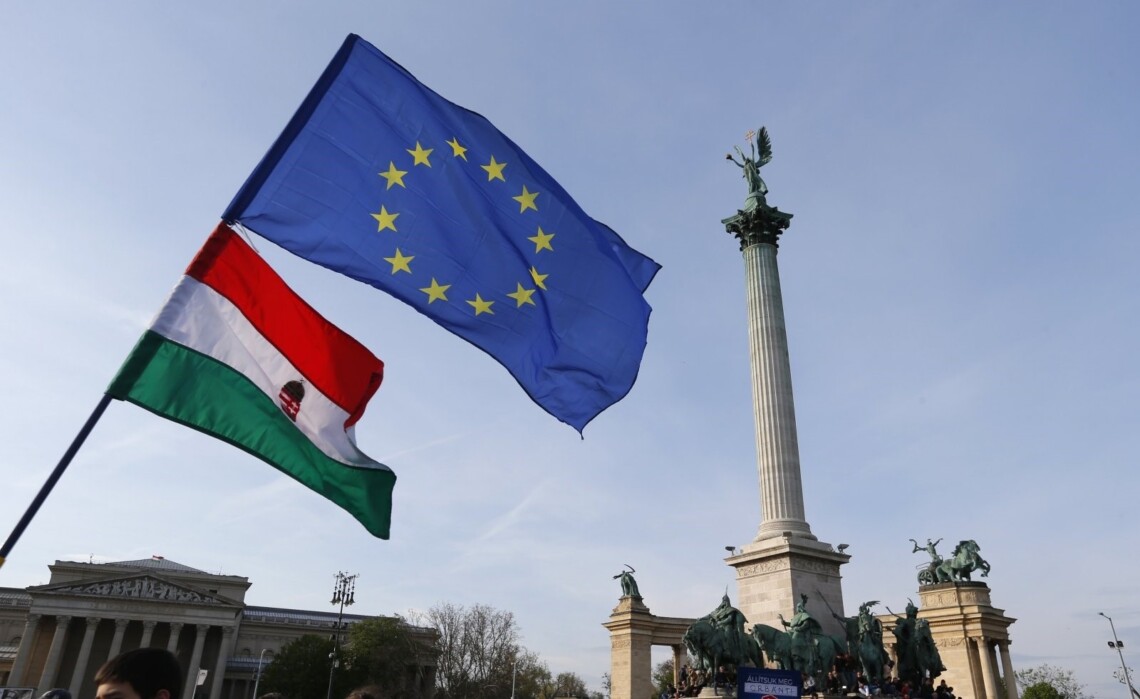 Flags of Hungary and the European Union. Photo: Reuters
Flags of Hungary and the European Union. Photo: Reuters
Although Hungary continues to insist it played no part in the return of the prisoners while still openly demonstrating its pro-Russian position, maintaining personal contacts with the Russian authorities and pressing for sanctions against the Russian Federation to be lifted.
Budapest’s behavior has not only antagonized Ukraine, but is making the West question the need for such an unreliable ally, which allows Russia to use itself as an instrument of influence against Ukraine and undermine trust in Western democratic institutions.
You can also highlight the text and press Ctrl + Enter


